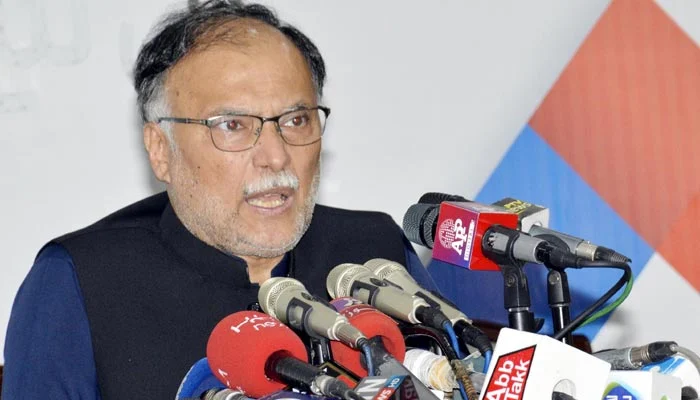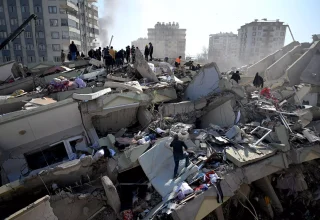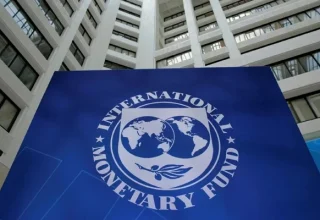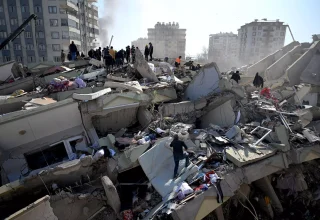
ISLAMABAD, Aug 29(ABC):The initial economic losses from floods in Pakistan could reach at least $10 billion, Planning Minister Ahsan Iqbal told in an interview on Monday.
Unprecedented and historical flash floods caused by abnormal monsoon rains have washed away roads, crops, infrastructure and bridges, killing at least 1,000 people in recent weeks and affecting more than 33 million.
“I think it is going to be huge. So far, (a) very early, preliminary estimate is that it is big, it is higher than $10 billion,” Iqbal said.
The minister said it might take five years to rebuild and rehabilitate the South Asian nation of 200 million people, which will be facing an acute challenge of food shortage.
He said that 45% of cotton crops had been washed away in addition to huge damage to vegetables and fruit and rice fields.
“So far we have lost 1,000 human lives. There is damage to almost nearly one million houses,” Iqbal said at his office.
“People have actually lost their complete livelihood,” he said.
Pakistan has already sought international help to deal with the overwhelming floods, and some countries have already sent in supplies and rescue teams.
Foreign Minister Bilawal Bhutto-Zardari told Reuters on Sunday that the country needs financial help to deal with “overwhelming” floods, adding that he hoped financial institutions such as the International Monetary Fund would take the economic fallout into account.
“I haven’t seen destruction of this scale, I find it very difficult to put into words … it is overwhelming,” said Bilawal, adding many crops that provided much of the population’s livelihoods had been wiped out.
Bilawal said that after relief efforts, the country would have to look at how to develop infrastructure that was more resistant to both floods and droughts and address the huge changes faced by the agriculture sector.
“Despite the fact that Pakistan contributes negligible amounts to the overall carbon footprint … we are devastated by climate disasters such as these time and time again, and we have to adapt within our limited resources, however we can, to live in this new environment,” he said.
Balochistan Chief Minister Mir Abdul Qudoos Bizenjo told reporters that the province had suffered more than Rs200 billion ($900 million) worth of damage from the more than two months of flooding.
“We are facing a lack of financial resources, tents and other relief goods and connectivity as all major highways is badly damaged … hampering our relief efforts,” he said, adding that his province needed more help from federal government departments to cope.
Khyber-Pakhtunkhwa’s Swat Valley – home to millions of people – was largely cut off from the rest of the country due to damaged infrastructure and flood waters. Local residents said that food and medicine was running out and they had little access to power.
































